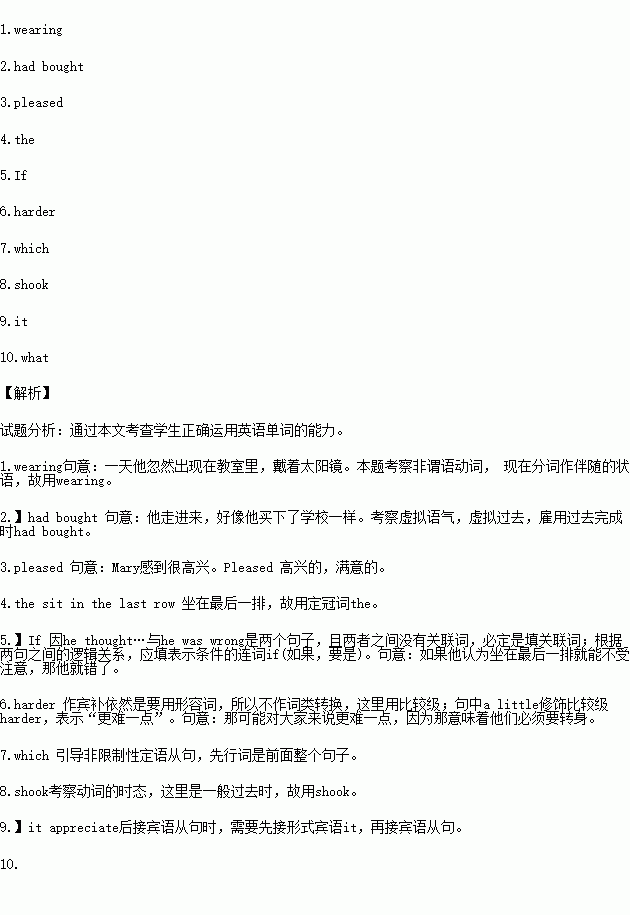题目内容
阅读下面材料,在空白处填入适当的内容(1个单词)或括号内单词的正确形式。
Mary will never forget the first time she saw him. He suddenly appeared in the class one day, 1. (wear) sun glasses. He walked in as if he 2. (buy) the school. And the word quickly got around that he was from New York City.
For some reason he sat beside Mary. Mary felt 3. (please), because there were many empty seats in the room. But she quickly realized that it wasn’t her, it was probably the fact that she sat in 4. last row.
____5. he thought he could escape attention by sitting at the back, he was wrong. It might have made it a little 6. (hard) for everybody because it meant they had to turn around, but that didn’t stop the kids in the class. Of course whenever they turned to look at him, they had to look at Mary, 7. made her feel like a star.
“Do you need those glasses for medical reasons?” the teacher asked. The new boy_8. (shake) his head. “Then I’d appreciate 9. if you didn’t wear them in the class. I like to look your eyes when I’m speaking to you.” The new boy looked at the teacher for a few seconds and all the other students wondered 10. the boy would do. Then he took them off, gave a big smile and said, “That is cool.”

